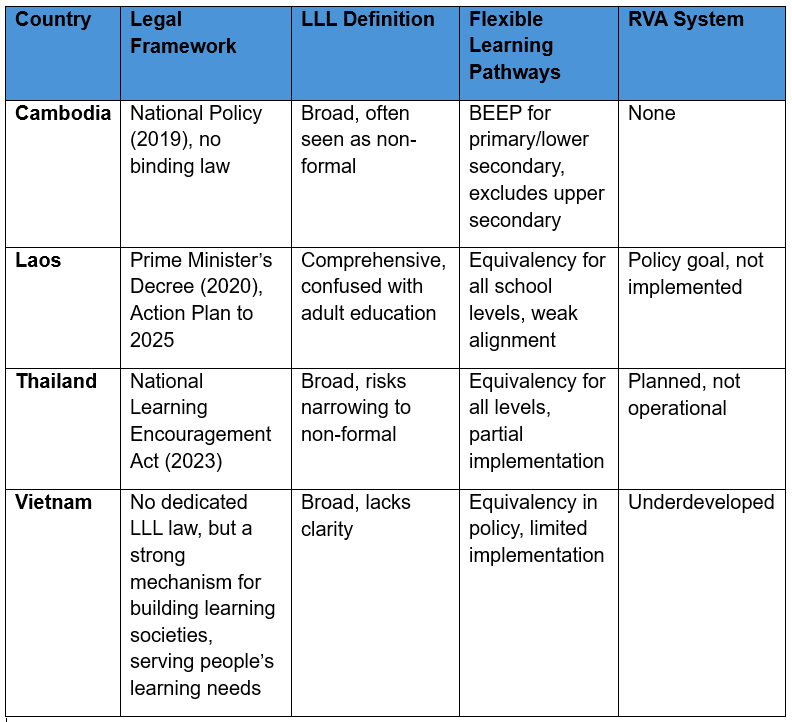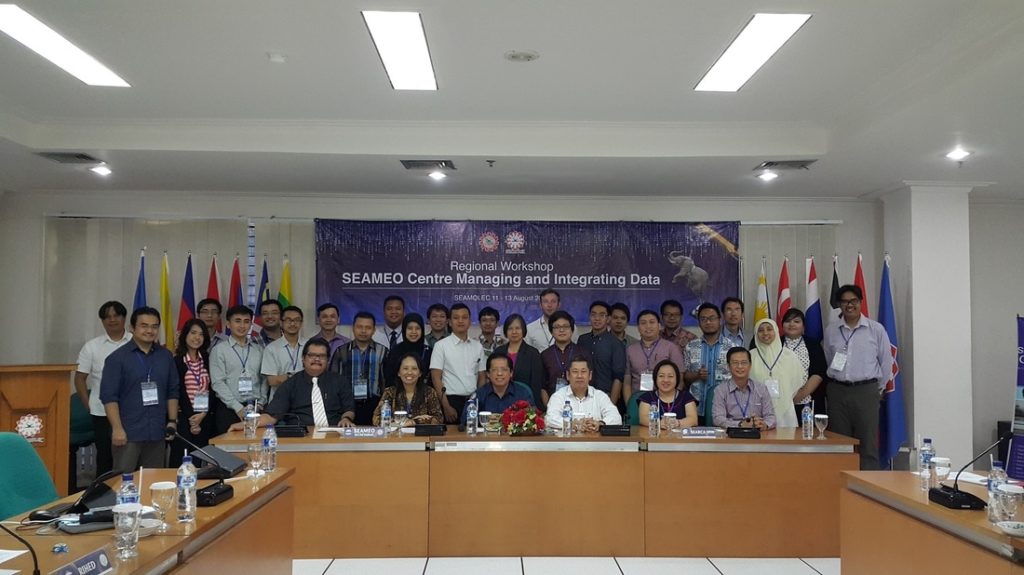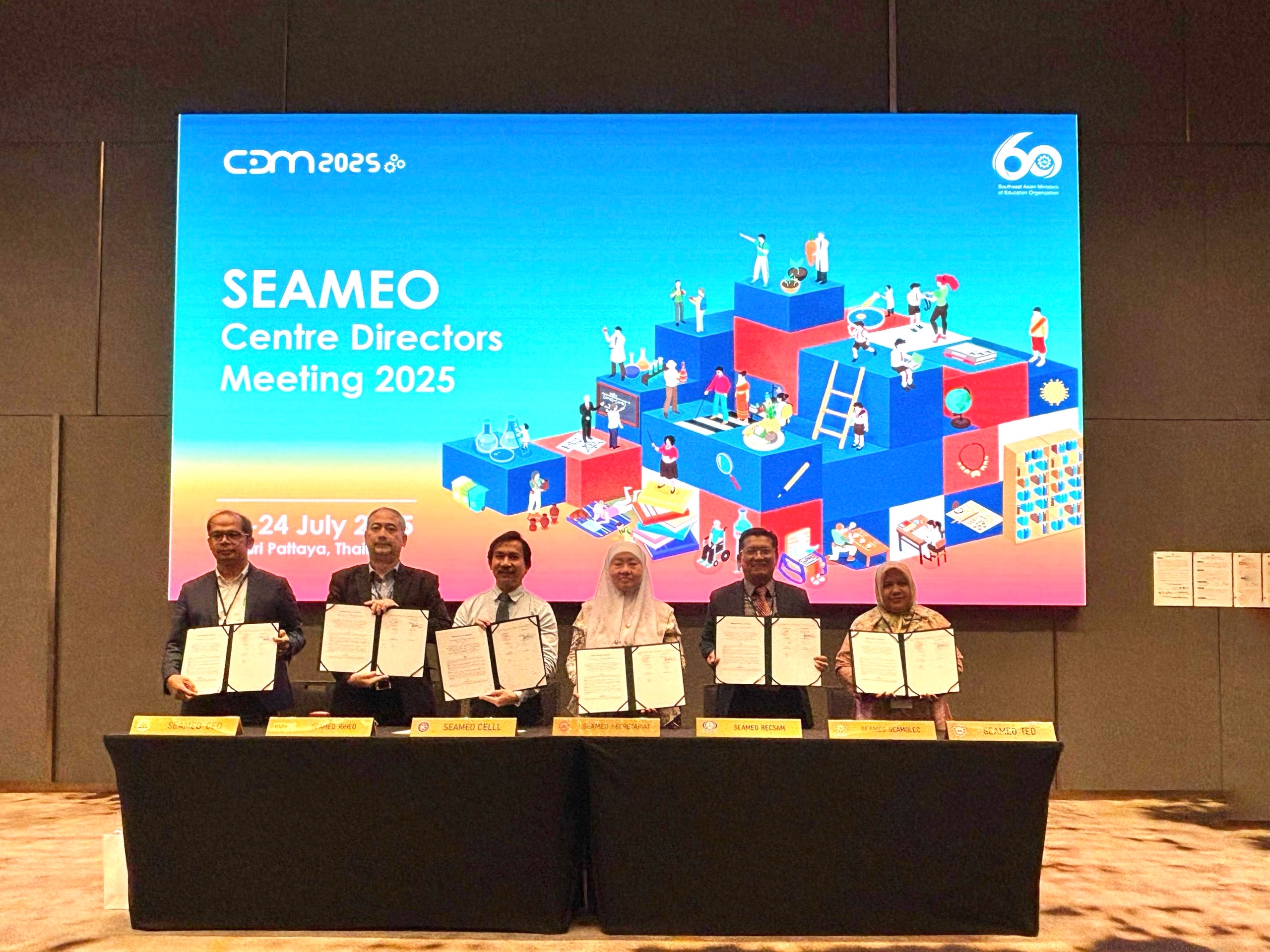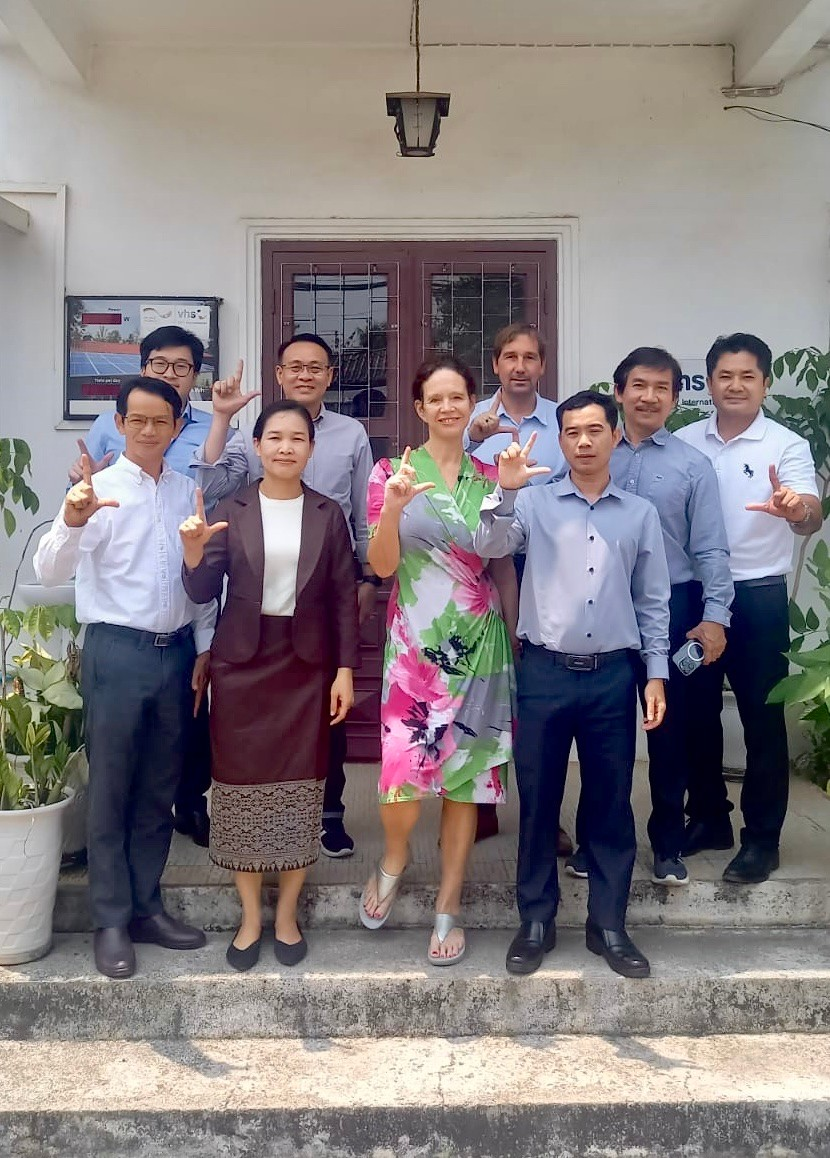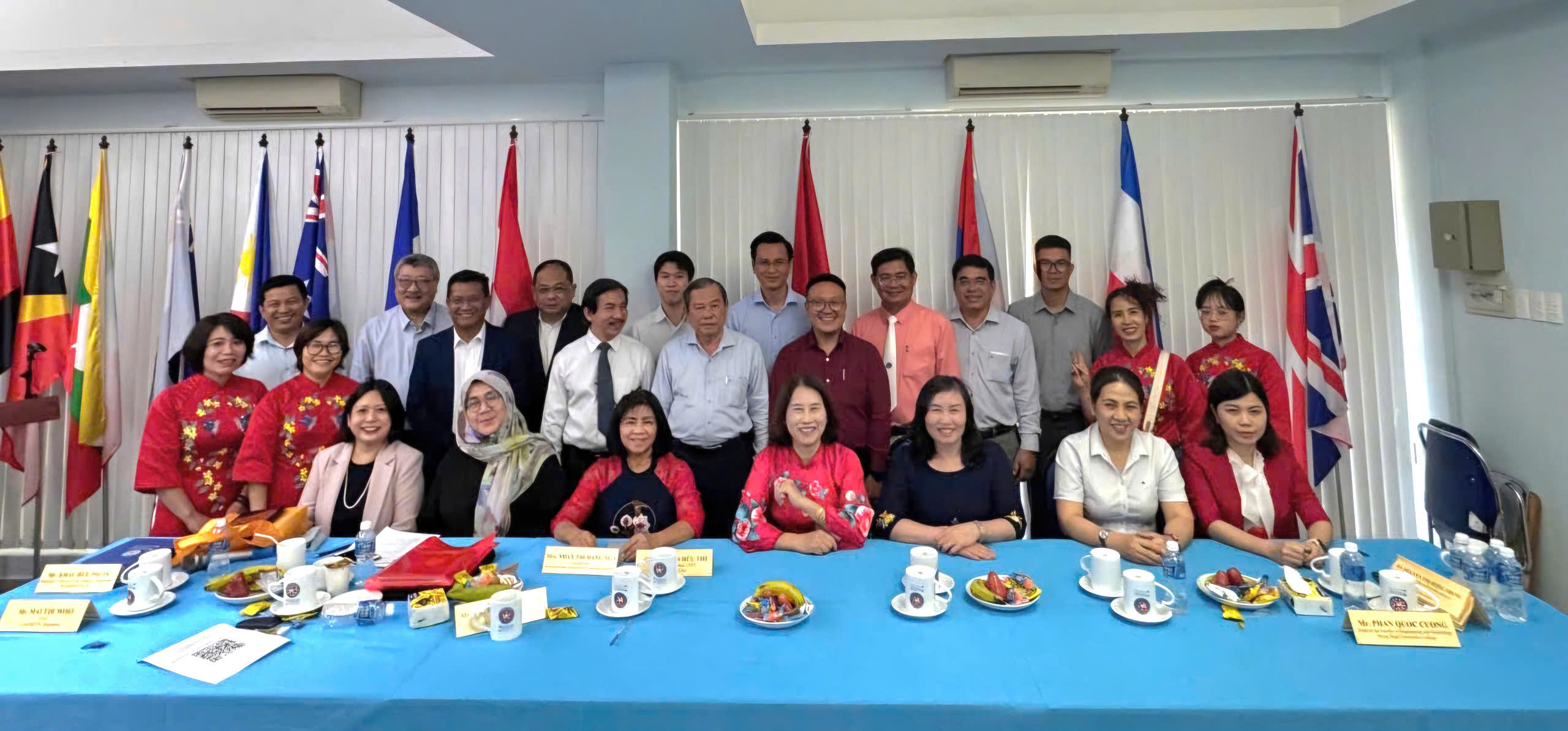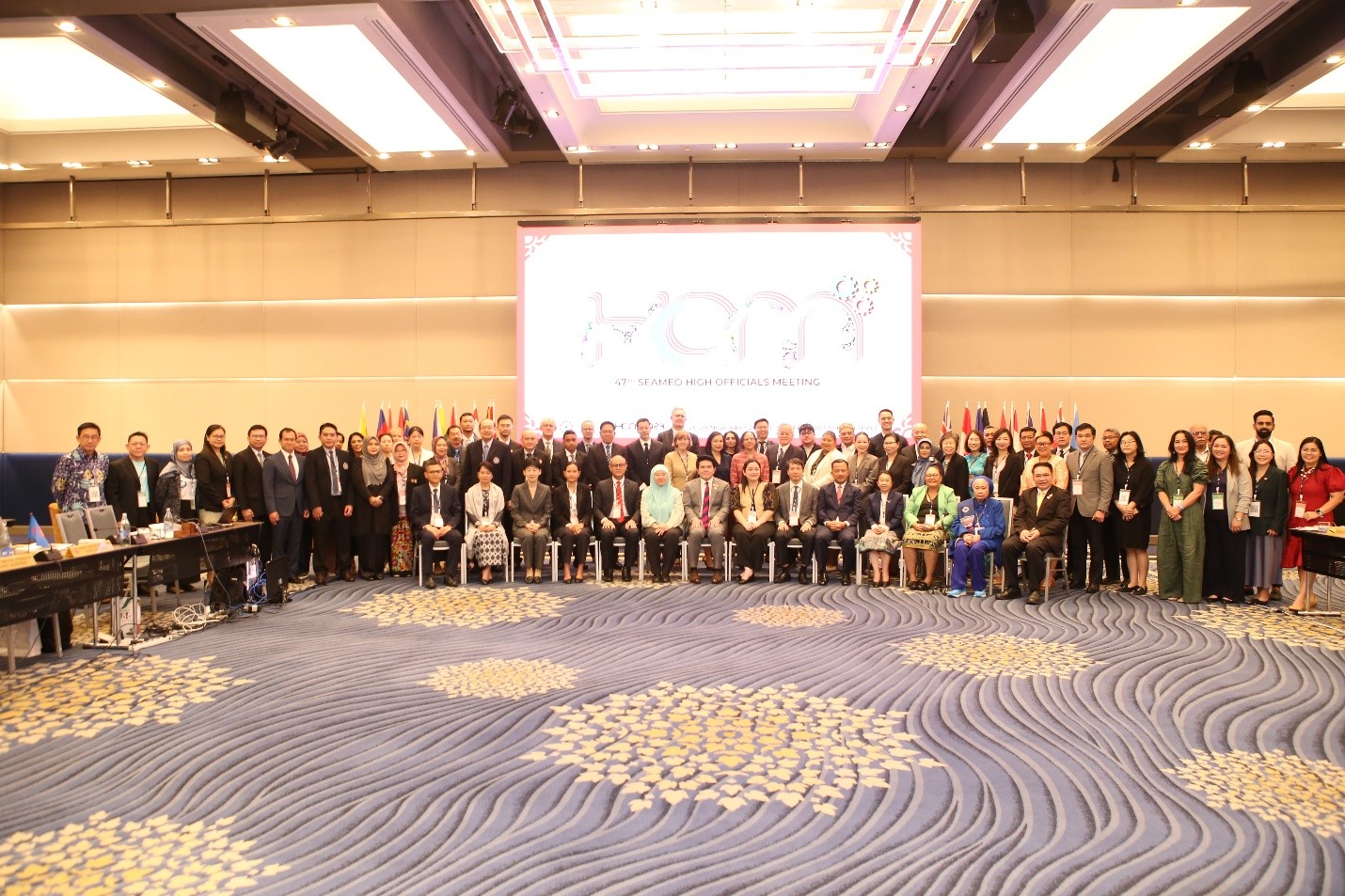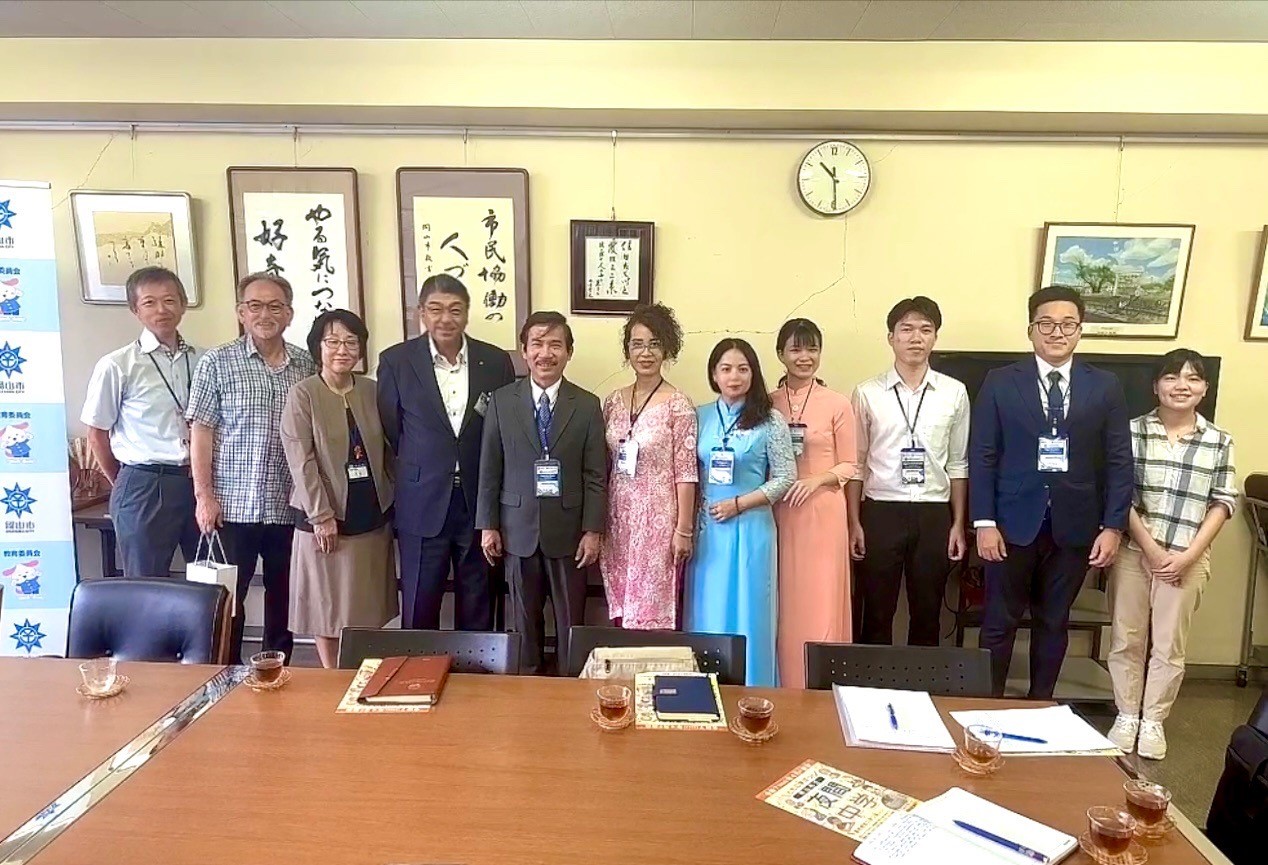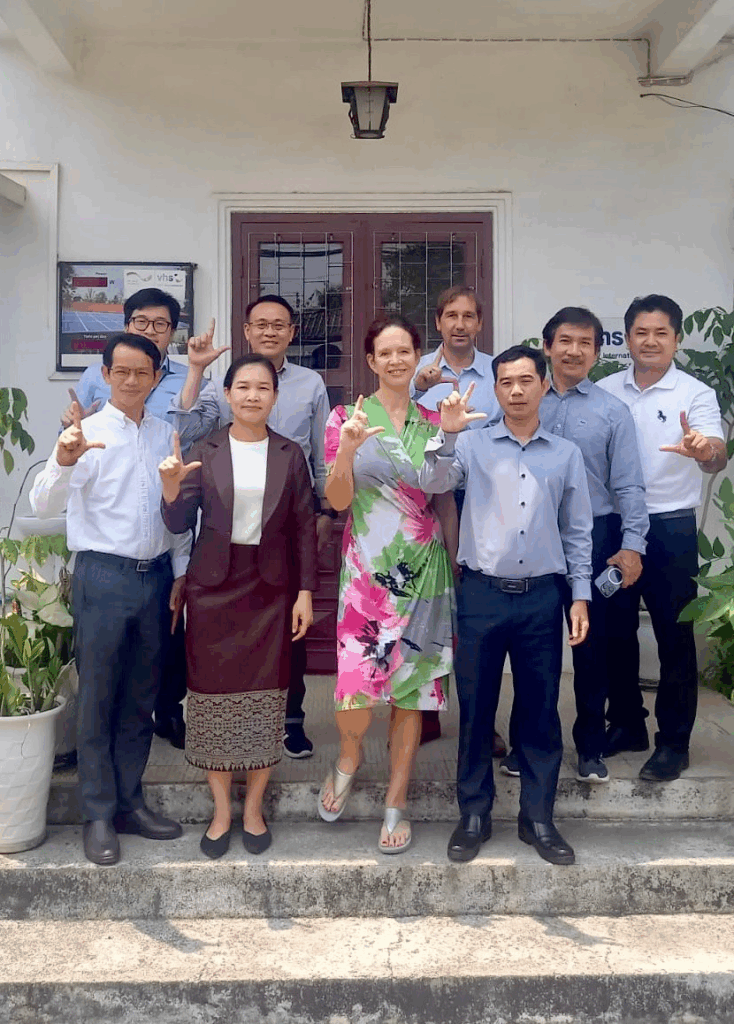
Vientiane, Laos – The Regional Office of DVV International in Vientiane hosted a two-day expert meeting on 6–7 May to finalise a regional synthesis report on lifelong learning (LLL) implementation in four Southeast Asian countries: Cambodia, Laos, Thailand, and Vietnam, a project initiated by DVV International Southeast Asia Regional Office. The meeting focused on refining the Cross-Country Study on Lifelong Learning Implementation, a report analysing LLL frameworks, policies, and practices across the four countries.
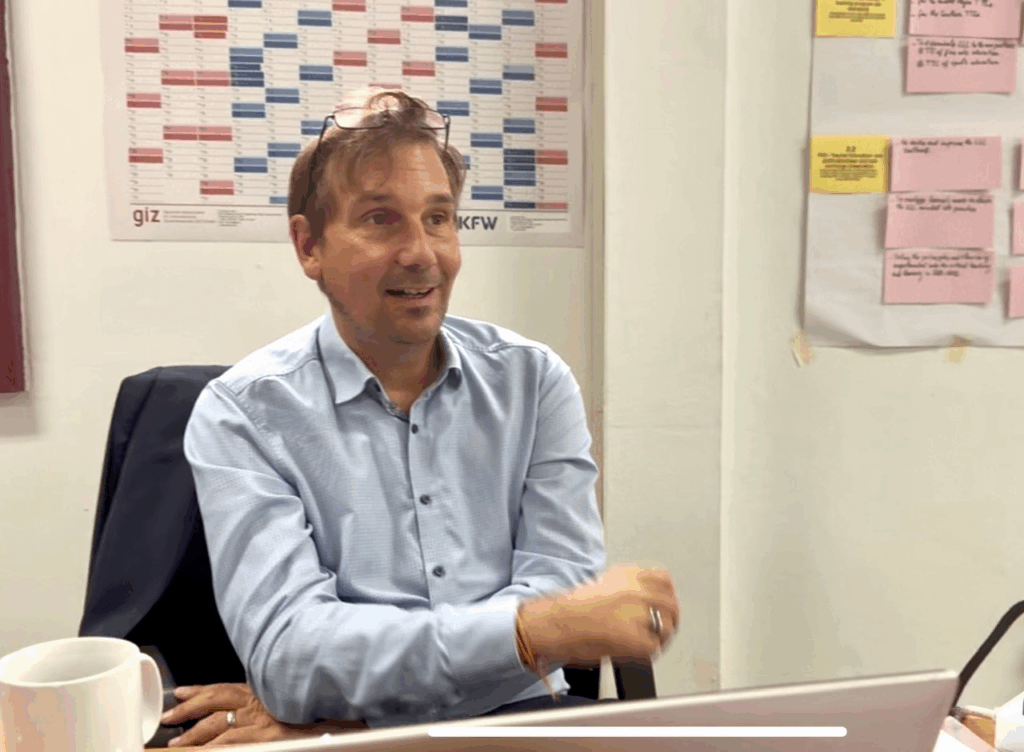
Representing Vietnam, the Regional Centre for Lifelong Learning of the Southeast Asian Ministers of Education Organisation Regional Centre for Lifelong Learning (SEAMEO CELLL) joined delegates from the Royal University of Phnom Penh, the Ministry of Education and Sports of Laos, the National University of Laos, and University of Chulalongkorn of Thailand, and UNESCO consultant Margarete Sachs-Israel. The meeting was chaired by Mr Christoph Jost, Regional Director of DVV International.
National Case Studies: Refining the Regional Report
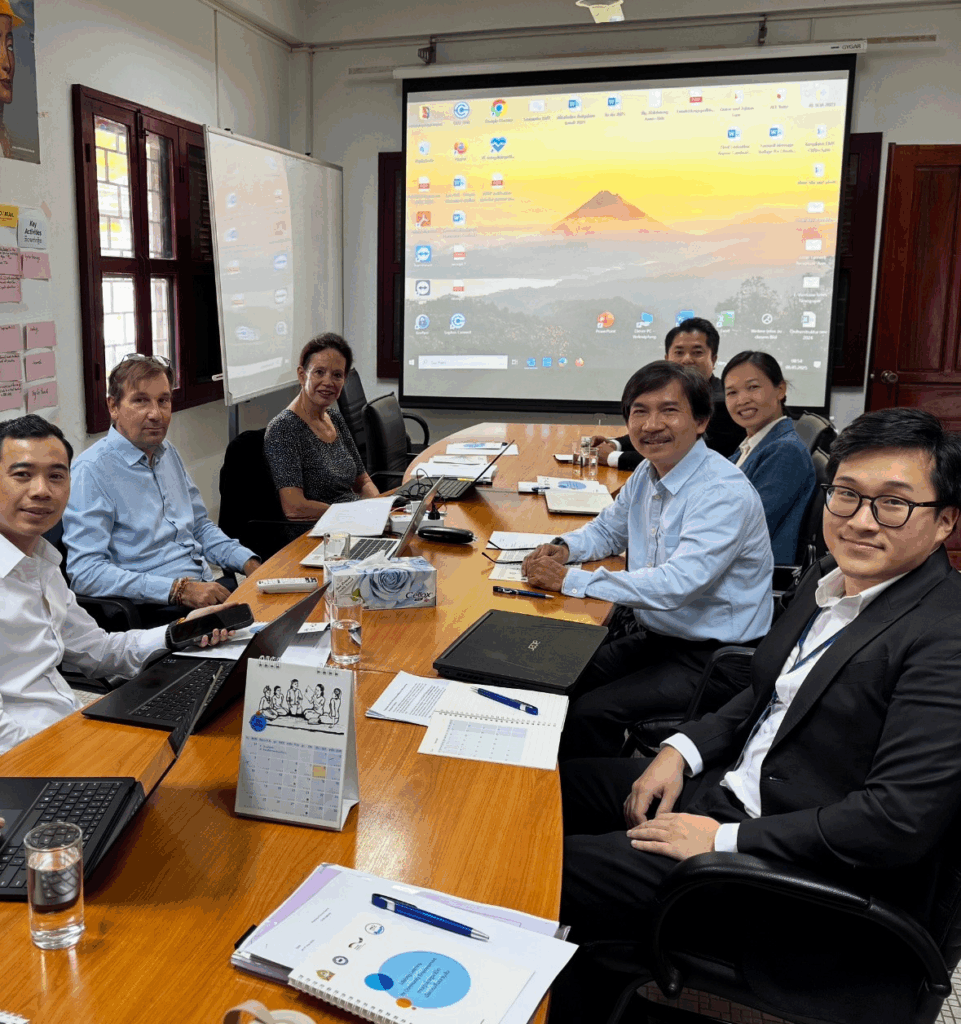
The morning of 6 May saw the four national teams present revised versions of their country reports. These case studies examined existing LLL frameworks, legal definitions, pathways for flexible learning, and progress towards recognition, validation, and accreditation (RVA) of non-formal and informal learning.
From Vietnam, Mr Phan Anh Minh delivered the presentation based on the research led by Mr Khau Huu Phuoc. The study identified a lack of a dedicated legal foundation for LLL as a major barrier, resulting in fragmented lifelong learning implementation across sectors. While legislations such as the 2013 Constitution and 2019 Law on Education mention lifelong learning, they fail to provide an official definition of lifelong learning, leading to a weak status of lifelong learning implementation and a lack of robust mechanism for integrated practice.
Data revealed LLL participation is not high, with only 10% of adults engaged in continuing education. The study suggested public-private partnerships, such as corporate training initiatives in Ho Chi Minh City, should expand access. The analysis further emphasised the lack of flexible learning pathways and RVA systems, recommending micro-credentials and digital badges to certify skills like digital literacy, critical for Vietnam’s tech-driven economy.
The Vietnamese report recommended the development and adoption of a standalone LLL law, a national inter-ministerial coordinating body, and the development of an LLL monitoring system with concrete indicators. The commune-level model of learning societies was recognised as a promising mechanism for community education, although it remains underfunded and lacks strategic direction.
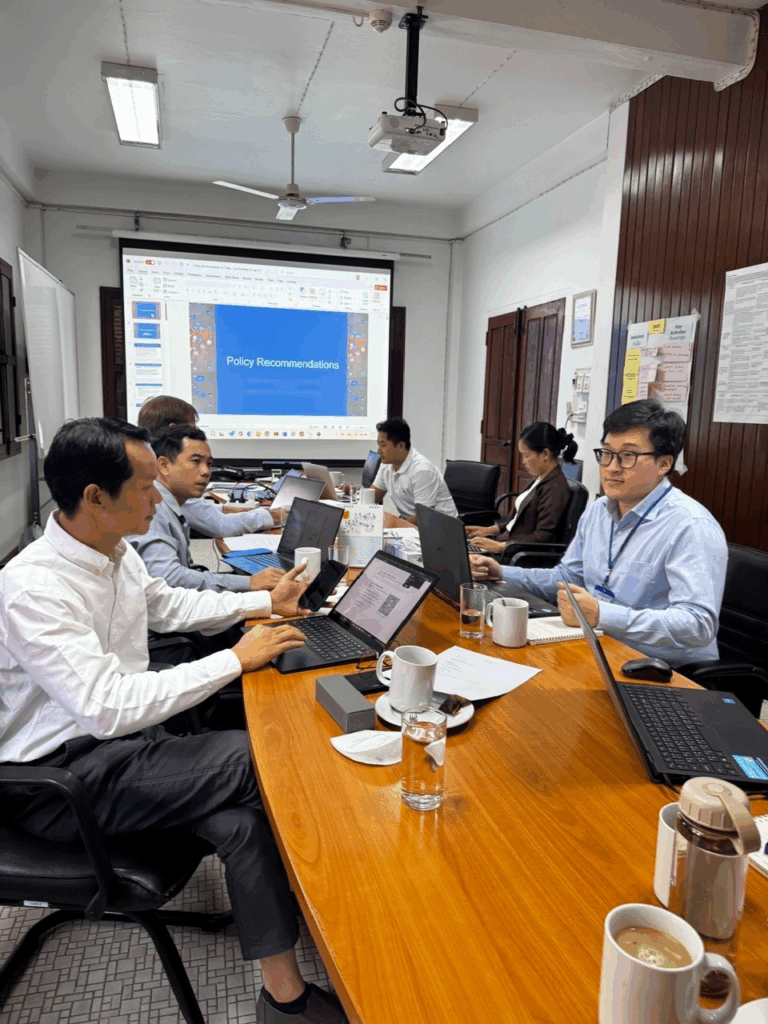
Thailand: Prof. Wirathep Pathumcharoenwattana outlined the National Learning Encouragement Act (2023), which seeks to foster a learning-oriented society. He noted the risks of limiting LLL to non-formal education and vocational skills. Thailand’s equivalency programmes span all school levels, but a proposed Credit Bank is incomplete. When Mr. Phan Anh Minh asked, “Before the National Learning Encouragement Act, was there any other law for LLL?” Prof. Wirathep explained that earlier laws, like the National Education Act (1999), referenced LLL but lacked a dedicated focus, with the 2023 Act being Thailand’s first specific LLL legislation.
Cambodia: Dr. Socheat and Mr. Neak Piseth presented on the National Policy on Lifelong Learning (2019) and draft National Action Plan (2024–2028). The Education Law (2007) broadly defines LLL, but without a binding legal framework, LLL is often confined to non-formal education. The Basic Education Equivalency Programme (BEEP) supports primary and lower secondary levels but excludes upper secondary, where dropout rates reach 30%. Cambodia lacks an operational RVA system.
Laos: Mr. Souksakhone Sengsouliya and Ms. Vanmany Vannasy discussed the Prime Minister’s Decree on LLL (2020) and its action plan to 2025. The decree defines LLL comprehensively, but stakeholders often view it as adult or non-formal education. Equivalency programmes cover primary to upper secondary levels, but alignment across learning forms is weak, especially at vocational and tertiary levels. RVA remains a policy goal but is unimplemented.
Comparative Analysis: Identifying Gaps
In the afternoon, Ms. Margarete Sachs-Israel presented a comparative analysis of LLL across the four countries. She noted Laos’ robust legal framework, driven by the 2020 decree, but highlighted Vietnam’s lag due to the lack of specific LLL law. LLL definitions are broad in policy but often misunderstood and in practice often reduced to non-formal or adult education. Flexible learning pathways are prioritised, but implementation is incomplete, with Cambodia’s BEEP excluding upper secondary and Laos facing alignment issues. RVA systems are largely non-existent. She recommended:
- Developing dedicated LLL laws.
- Raising awareness to clarify LLL’s scope.
- Establishing RVA systems linked to national qualifications frameworks.
- Enhancing flexible learning pathways.
Global Trends and Post-COVID Challenges
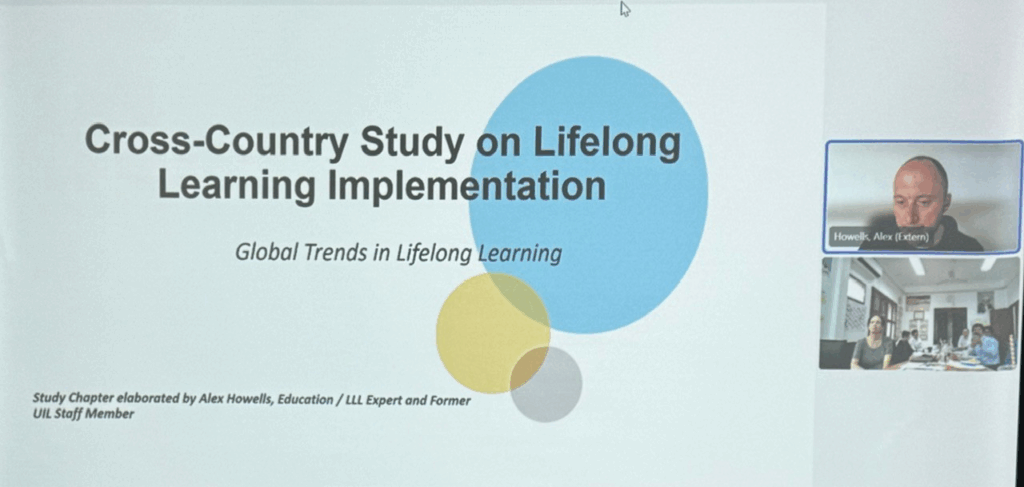
on Lifelong Learning Implementation, during the DVV International regional research meeting in Vientiane, Laos, on 6 May 2025
The discussion was further enriched by a virtual intervention from Mr. Alex Howells who presented on Global Trends in Lifelong Learning, a chapter he authored for the study. He outlined LLL’s shift to a holistic approach, integrating with sectors like health and sustainability, and its alignment with SDG4 (inclusive education) and other goals (UNESCO LLL Framework).
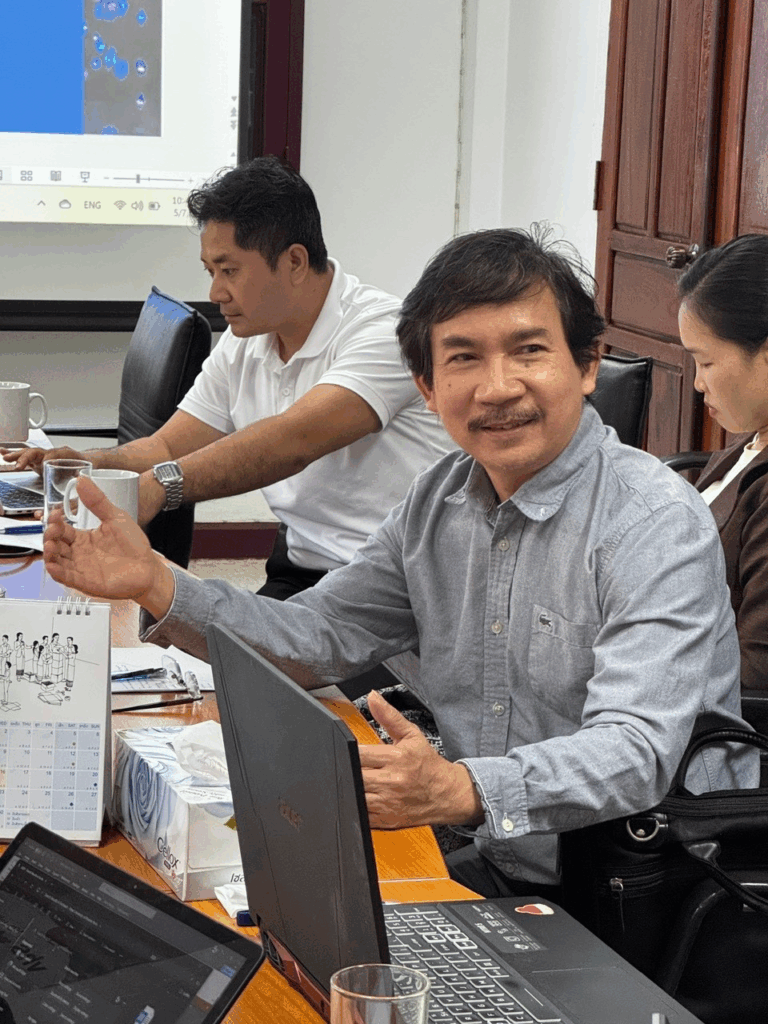
During the Q&A, Mr. Khau Huu Phuoc asked, “After COVID-19, UNESCO midterm review of progress towards achieving SDG4 disclosed that we have lagged behind timelines and risk failing the goals. Does this mean true LLL is still far on the horizon?” Mr. Howells responded, “If true lifelong learning existed, it would manifest as a culture of learning embedded throughout life—not merely as policy statements.” Additional research indicates that school closures impacted 95% of children globally, causing a 0.21 standard deviation learning loss (UNESCO GEM Report). The UNESCO SDG4 Midterm Review (2023) confirmed delays due to inequalities and underfunding, yet LLL’s inclusive framework remains viable with investments in digital skills and flexible pathways (Springer Nature SDG4).
Day 2: Lessons from Other Countries and Action Plan
On 7 May, Ms. Margarete Sachs-Israel continued her analysis, referencing case studies from the Philippines and South Korea as models for the participating countries. She highlighted the Philippines’ approach to LLL in higher education (HE), which integrates flexible learning pathways and RVA to support adult learners and professionals seeking upskilling through university programmes. She also cited South Korea’s Credit Bank System, which allows learners to accumulate credits from diverse learning experiences towards recognised qualifications. These examples were presented as potential model frameworks for Cambodia, Laos, Thailand, and Vietnam to develop their own RVA systems and flexible learning pathways.
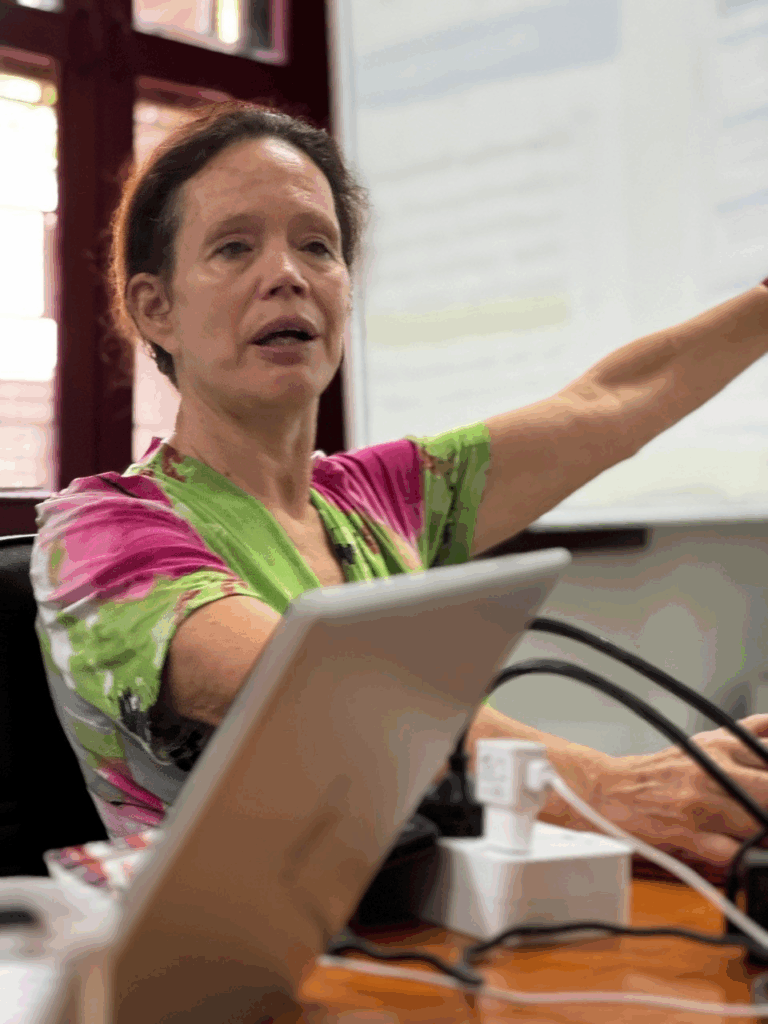
In the afternoon session, participants discussed governance, equity, financing, and best practices to finalise the report’s structure and content. The session concluded with Mr. Christoph Jost summarising the meeting’s outcomes and outlining a clear action plan for completing the Cross-Country Study on Lifelong Learning Implementation. A deadline of 30 August 2025 for final revisions to the national case studies and comparative analysis was set, with a target publication date of 15 November 2025. Mr. Jost proposed disseminating the report through SEAMEO CELLL and DVV International’s networks, including regional education forums and online platforms, to maximise its impact on policy and practice.
Towards Inclusive Education
The Vientiane meeting marked a significant step toward building and advancing LLL frameworks in Southeast Asia. The synthesis report, informed by empirical case studies and comparative analyses, will serve as a blueprint for policymakers seeking to embed lifelong learning within national education strategies for inclusive and resilient education systems.
Table: Summary of National LLL Frameworks
